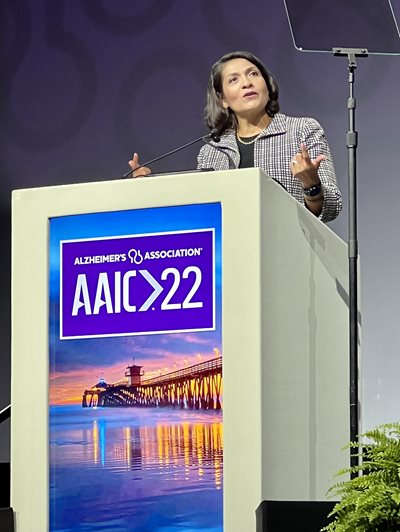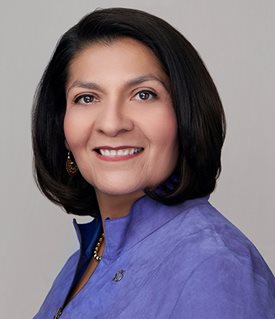
Join Our Community of Monthly Supporters to Fight Alzheimer’s Disease All Year Long
Join Our Community of Monthly Supporters to Fight Alzheimer’s Disease All Year Long
Help provide care and support for millions affected by Alzheimer’s and advance research to bring us closer to a cure all year long with a monthly gift.
Give MonthlyAlzheimer’s and other dementia research is experiencing a renaissance. There is exponential growth in scientific discovery, including an expanded understanding of the biology of aging and disease, identifying and verifying biomarkers, and developing and testing treatment and prevention strategies. We now have the first Food and Drug Administration (FDA)-approved treatment that addresses the underlying biology of the disease; a robust and diverse pipeline, including drug and non-drug treatments; and simpler and more accurate diagnostic tools on the near-term horizon.
As with any renaissance, the invigoration of the Alzheimer’s and dementia field comes with vigorous debate and disagreement, those who cling on to established ideas and those who seek to smash the status quo. This debate and disagreement is essential in research, and as a community we must be grounded in evidence to drive our progress.
 Recently, the validity and trustworthiness of some research findings have been called into question. The possible breach of scientific integrity is highly concerning.
Recently, the validity and trustworthiness of some research findings have been called into question. The possible breach of scientific integrity is highly concerning.
There is great urgency for breakthroughs in scientific understanding and product development. While we might debate the multiple pathways, we all must agree on the crucial importance of scientific integrity. It is “the coin of the realm;” the foundation on which we build our work. There is no room, and never has been, for dishonesty and deception. When there are instances of falsehood, there needs to be appropriate accountability for all who are found responsible. Neither money nor glory should flow to those who abdicate their scientific integrity.
To be clear: Scientific progress does not rest on one individual or research paper or hypothesis. Scientific discovery and progress emerges from the diverse interactions and perspectives of the collective whole. Science is the ultimate team sport.
One of the greatest examples of this team is seen during the Alzheimer’s Association International Conference (AAIC) 2022 being held this week in San Diego and virtually. More than 4,000 pieces of science are being reported as the research community comes together to share findings, learn from peers and move science forward. I’m so proud to be a part of this community. A community of researchers who have dedicated their lives to scientific discovery that will change the lives of the people and loved ones directly touched by this heartbreaking disease. I'm proud to be on this team, this is truly the ultimate team sport.
About the author: As chief science officer, Maria C. Carrillo, Ph.D., sets the strategic vision for the Alzheimer’s Association global research program. Under her leadership, the Association is the world’s largest nonprofit funder of Alzheimer’s research.

The first survivor of Alzheimer's is out there, but we won't get there without you.
Donate Now
Learn how Alzheimer’s disease affects the brain.
Take the Brain Tour
